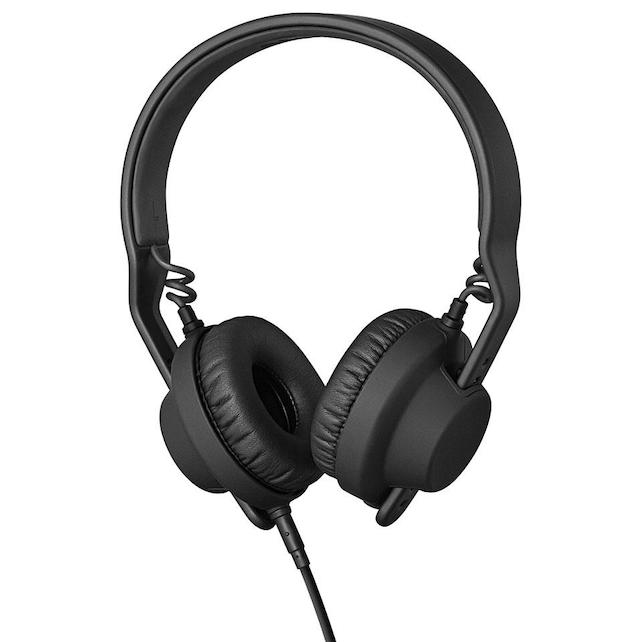Other Items You'll Need
Introduction
As with most hobbies, there are a handful of essential things that may not be immediately obvious to you when you think about your initial gear purchases, and others that are optional but you may be considering buying. even if you put some of these purchases off until later, it’s worth thinking about them now, if only to start the fun process of researching your future world-conquering set-up.

Probably the first thing that needs to be on your gear list is a decent pair of headphones. They are important for DJs because you need to be able to listen clearly to stuff your audience isn’t hearing, and the usual way to do that is through using headphones.
DJ headphones need to be, in order of importance: isolating (i.e. they are well padded to effectively cut off outside sound), loud, durable, adjustable (not for a comfortable fit, but so you can wear them with one ear cup on and one off your ears), and foldable (for easy transport). Many DJs, myself included, prefer a coiled cable so it doesn’t get under your feet when you’re standing next to your gear, but at the same time lets you walk away from your gear with the headphones still on. Some models offer detachable cables with an extra style of cable too, so you may get a short straight cable for use with your phone as well as the longer DJ cable. Finally, while over ear models dominate, smaller on ear designs are preferred by some, and the latter definitely work better if you’re buying one set for both DJing and when you’re out and about. Go for closed back rather than open back designs.
For just learning, frankly any kind of headphones that have a headband will do (sorry, your phone earbuds are definitely out), so it’s worth digging around at home to see if you have some. That said, you can get workable DJ models for as little as £20, although of course you can easily go up to many times that.
Speakers/PA system
Already got a TV sound bar, or a hi-fi, or even just a loud portable speaker? As long as your existing speaker set-up sounds good and goes loud enough for you to be able to truly fill the room with music, it will probably do fine for DJ practice. All that’s necessary is to be able to set it up near to your DJ system (see next chapter), and for it to have a socket so you can plug in your DJ controller using a cable (i.e. not Bluetooth, AirPlay, or any other wireless system).
If you want to invest in something better or something specially for DJing with, then you have two choices: studio monitor-style speakers or a small PA system. Studio monitors are dedicated speakers meant for DJ/producer types. They are usually sold individually (i.e. you buy two), and each has its own amplifier or amplifiers built in as well as its own power supply and music inputs. As they’re separate, you run the left-hand output of your DJ system to the left-hand speaker, and the right-hand output to the right speaker. In price, good ones range from around £200 per speaker upwards.
Such speakers are great if you want the very best sound quality and you never (and I repeat, never) want to use them in a party situation. Studio monitors can and probably will end up broken if you use them at parties as they’re not physically or electrically designed for the kind of stress you’ll put them under in a party situation. If you want to buy a speaker system that you can use at parties, a small PA system is better. Many such systems have the beauty of being small enough to use for practising at home, too, so you only need buy one system. Get one with tripods for your speakers and long cables, and you’ll have all you need for both practice and parties.
If you can afford it, buying a subwoofer as well (a big floor- standing speaker designed only to pump out bass) will make your system sound better when you’re in a full room of people; you can always leave this in your car boot or garage rather than humping it up the stairs to your bedroom studio as your PA will work fine without it for home use.
Miscellaneous things
If you’re planning on DJing from USB drives rather than a laptop, obviously you’re going to need a USB stick or two to keep your music on. Buy a durable design with the biggest capacity you can afford.
Protecting your gear is a smart move. A decent case, back pack, or trolley will help keep your controller or other gear looking new, and you could invest in a dustcover too (an old towel thrown over your gear will do the job, but moulded made-to-fit acrylic covers are available, and are a better choice). Raising your laptop higher than your DJ controller using a laptop stand will help you to see the screen properly (go for something easily foldable and sturdy). Make yourself heard with a microphone (wired are cheapest, make sure your choice will plug in to whatever microphone socket is available to you on your DJ gear, and
go for a dynamic mic).
Finally, make sure you figure out the leads you need and get them all, plus spares – and don’t forget a decent power extension cable, heavy duty and with a high amp fuse if you’re going to be running a PA system through it too.

